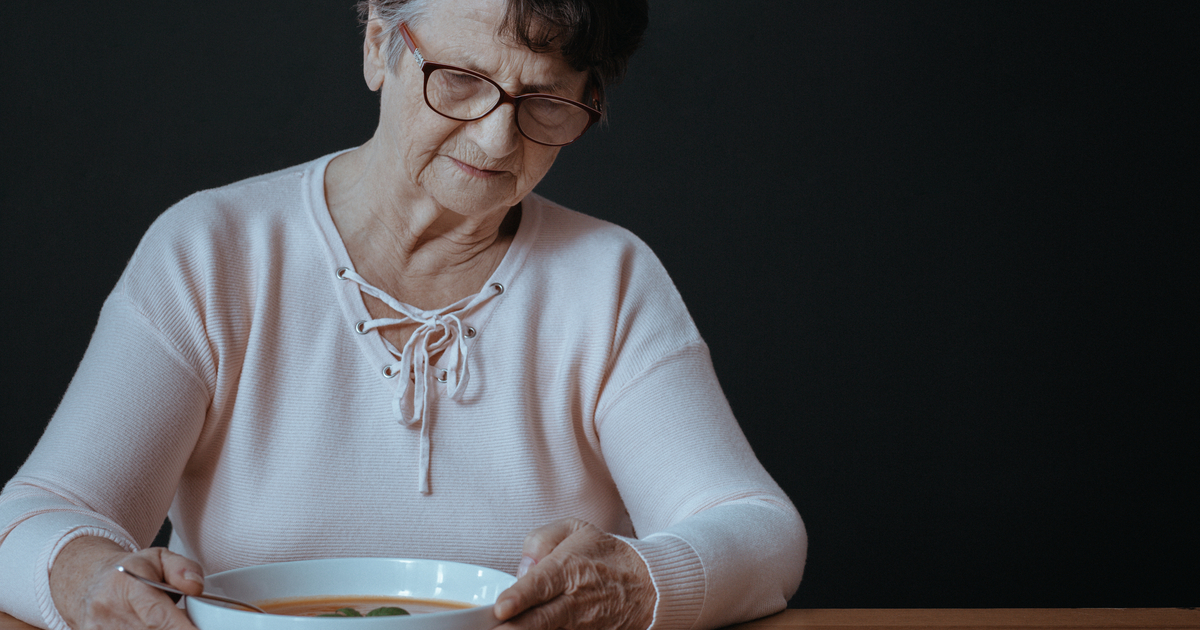One of the biggest challenges when caring for an aging in place elderly loved one is getting them to eat enough. Millions of older Americans experience a loss of appetite that places their health and wellbeing at risk because their body isn’t getting the daily nutrients it needs.
If you’re currently caring for a senior who has a loss of appetite, it’s frustrating when they won’t eat no matter what dishes you prepare. Don’t give up. Instead, use the following strategies to help your loved one rediscover that healthy appetite they once had.
Why Seniors Experience Anorexia
The term “anorexia” describes anyone who’s lost their appetite, including seniors. Here are some of the main reasons why older adults become anorexic:
- A short-term illness
- Changing taste buds
- Chewing or swallowing discomfort
- Depression and loneliness
- Fatigue
- Chronic pain
- Side effects from certain medications, like chemotherapy drugs
In addition, several medical conditions can cause a loss of appetite, including:
- Dementia or Alzheimer’s disease
- Parkinson’s
- Thyroid disorders
- Chronic liver disease or hepatitis
- Kidney disease or failure
- Cancers; notably lung, ovarian, stomach and pancreatic
Most times, when a senior loses their appetite it’s not an eating disorder, but rather an indication of a more serious health problem like one of those listed above. As a result, when you first notice that your loved one has stopped eating like they should get them to a doctor.
Getting Their Appetite Back Again
In addition to seeing a physician, other ways you can help a senior get their appetite back again include:
Be Supportive
The first step is being supportive and understanding without getting frustrated or being pushy. Once you’ve taken the time to get to the bottom of their poor eating habits, help them develop a game plan. But no senior likes to be lectured or scolded, especially by their own child. Instead, respectfully discuss with your loved one how you’d like to help them set realistic goals to make it happen.
Try Their Favorite Foods
The aging process causes taste buds to change, so don’t worry as much about your loved one eating a “proper diet” versus serving them the foods they love. That might mean preparing them mashed potatoes and gravy, or a big bowl or ice cream topped with chocolate syrup. Make it your goal initially to get them to take in some much-needed calories. And, if chewing or swallowing is a problem, try pureeing some of their favorite foods or making fruity shakes.
Eliminate Food Odors
Many long-term illnesses and medications effect both taste and smell. If this is a problem for your senior, avoid serving them meal items with strong odors like fried foods, Brussel sprouts, smelly cheeses and seafood. Colder foods usually have fewer odors which should help.
Make Mealtime More Social
Many seniors who have recently lost a spouse don’t eat because it reminds them too much of meals they shared. Instead of just dropping off a meal at their home, sit down and join your loved one for some conversation. You can also ask them to join your crew when you’re going out to eat at a restaurant. Or, encourage mom or dad to invite their friends over to share a meal you’ve prepared.
Counseling
If loneliness and depression are causing their anorexia, try to get your loved one to seek counseling with a licensed psychotherapist. After a few sessions, you may be pleasantly surprised to learn that their desire to eat has returned.
Exercise
Nothing stimulates an appetite quite like some calorie-burning exercise. Encourage your loved one to participate 3 to 5 times a week in some low-impact forms like chair aerobics, water aerobics, Yoga, Tai Chi or walking.
Caregivers with Creative Meal Ideas for Finicky Seniors
Caring for an aging loved one with a loss of appetite can be hard when you have your own household to manage or live far away. When you need a hand, contact Seniors Prefer Homecare. As a fully licensed and insured agency, our carefully screened caregivers have the creative meal ideas seniors with finicky appetites need so they can keep aging comfortably in place right where they want to be.
In addition to preparing meals, our highly trained aides can assist seniors with grocery shopping, medication reminders, personal hygiene, transportation and companionship. And, all our family trusted in-home services can be individually combined within an affordable package that’ll put your mind at ease. To learn more about Seniors Prefer Homecare, or to schedule a FREE, in-home consultation for a senior in Huntsville or Tuscaloosa, AL, please visit: seniorspreferhomecare.com now!

